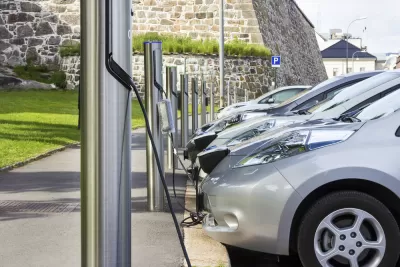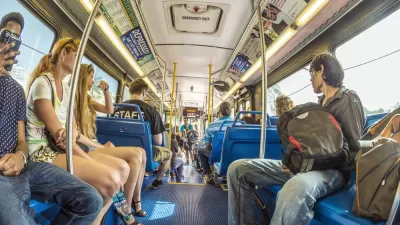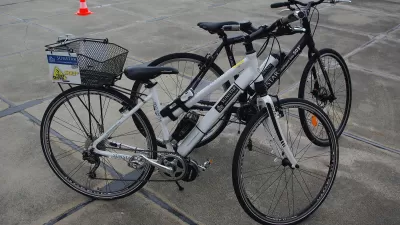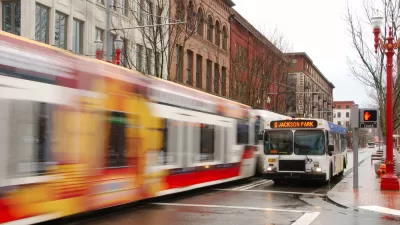The focus on electrifying personal vehicles misses the opportunity to transform urban transportation systems, reduce congestion, and make cities more affordable.

"Introducing electric vehicles (EVs) on a massive scale has often been framed as the solution to reducing passenger transport emissions," writes Vera O'Riordan, but electrification alone won't be enough to meet emissions reduction goals and keep global warming at less than 2 degrees, according to new research.
In addition, a population that continues to depend on cars poses significant problems for growing cities. With urbanization on the rise and space at a premium, we must reduce car ownership in cities if we are to keep them as affordable and accessible as possible. Huge amounts of land that could otherwise be used to house people or be dedicated to nature are still reserved for roads and car parks.
O'Riordan describes the UN Intergovernmental Panel for Climate Change's recommended transportation planning approach, known as "Avoid, Shift, Improve." The framework advocates for policies that allow people to reduce their need to travel very far for their daily needs and outlines solutions for shifting necessary travel to more sustainable modes and improving energy sources for transportation.
Transportation advocates have similarly criticized policymakers' focus on electric vehicles, denouncing this car-centric approach as a perpetuation of our current, flawed systems of transportation and urging support for more efficient, multi-modal transit networks and safe infrastructure.
FULL STORY: Electric vehicles aren’t a fix for carbon emissions. These 3 things need to change—fast

Alabama: Trump Terminates Settlements for Black Communities Harmed By Raw Sewage
Trump deemed the landmark civil rights agreement “illegal DEI and environmental justice policy.”

Study: Maui’s Plan to Convert Vacation Rentals to Long-Term Housing Could Cause Nearly $1 Billion Economic Loss
The plan would reduce visitor accommodation by 25% resulting in 1,900 jobs lost.

Why Should We Subsidize Public Transportation?
Many public transit agencies face financial stress due to rising costs, declining fare revenue, and declining subsidies. Transit advocates must provide a strong business case for increasing public transit funding.

Paris Bike Boom Leads to Steep Drop in Air Pollution
The French city’s air quality has improved dramatically in the past 20 years, coinciding with a growth in cycling.

Why Housing Costs More to Build in California Than in Texas
Hard costs like labor and materials combined with ‘soft’ costs such as permitting make building in the San Francisco Bay Area almost three times as costly as in Texas cities.

San Diego County Sees a Rise in Urban Coyotes
San Diego County experiences a rise in urban coyotes, as sightings become prevalent throughout its urban neighbourhoods and surrounding areas.
Urban Design for Planners 1: Software Tools
This six-course series explores essential urban design concepts using open source software and equips planners with the tools they need to participate fully in the urban design process.
Planning for Universal Design
Learn the tools for implementing Universal Design in planning regulations.
Smith Gee Studio
Alamo Area Metropolitan Planning Organization
City of Santa Clarita
Institute for Housing and Urban Development Studies (IHS)
City of Grandview
Harvard GSD Executive Education
Toledo-Lucas County Plan Commissions
Salt Lake City
NYU Wagner Graduate School of Public Service





























